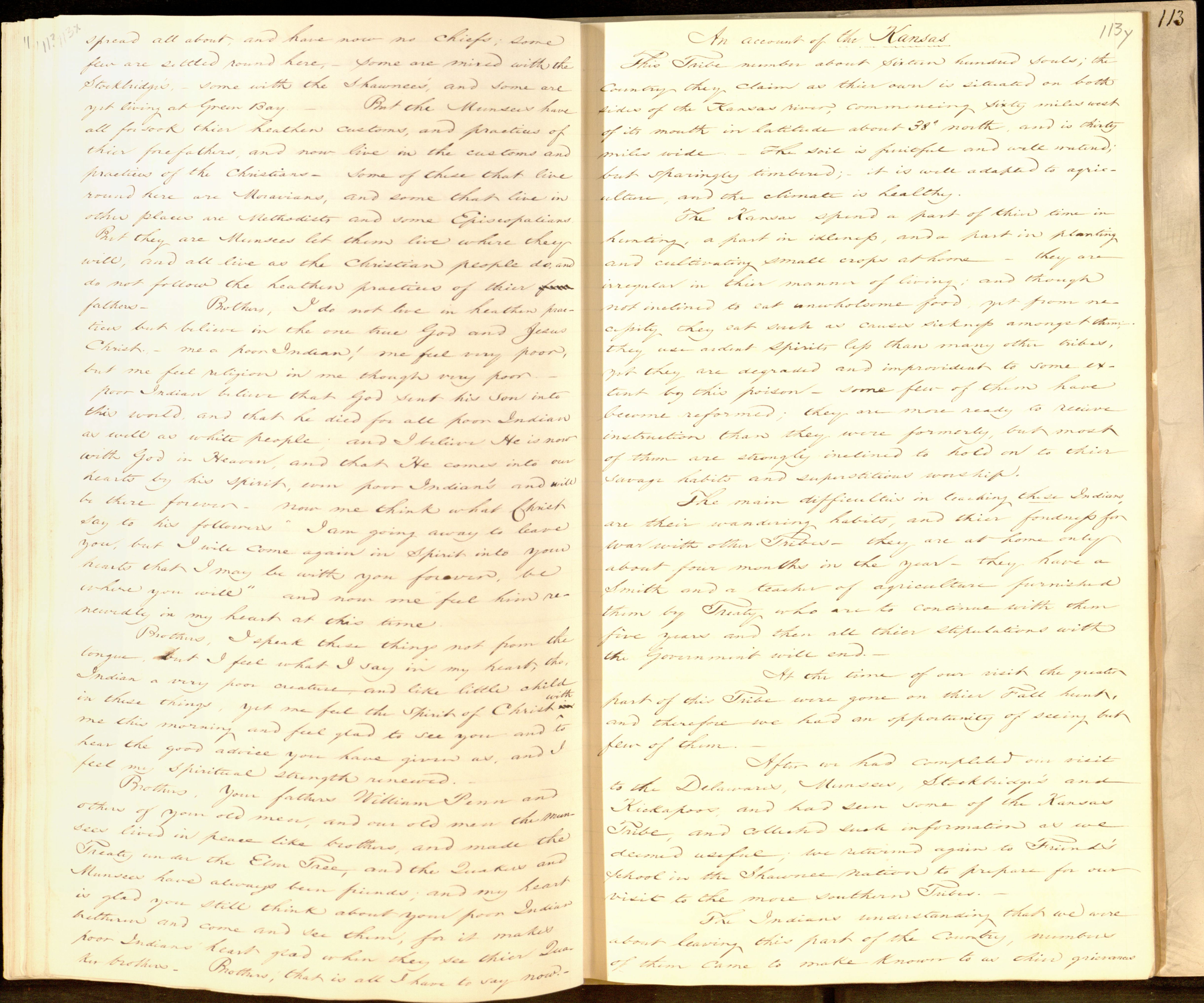spread all about, and have now no chiefs; some
few are
settled round here--some are mixed with the
Stockbridge
yet living at Green Bay
all forsook thier heathen customs, and practices of
thier forefathers, and now live in the customs and
practices of the Christians. Some of these that live
round here are Moravians
other places are Methodist
But they are Munsees
will, and all live as the Christian people do, and
do not follow the heathen practices of thier
fathers. Brothers, I do not live in heathen prac-
tices but believe in the one true God and Jesus
Christ--me a poor Indian; me feel very poor,
but me feel religion in me though very poor.
poor Indian believe that God sent his son into
this world, and that he died for all poor Indian
as well as white people; and I believe He is now
with God in Heaven, and that He comes into our
hearts by his spirit, even poor Indian's and will
be there forever. Now me think what Christ
say to his followers I am going away to leave
you, but I will come again in Spirit into your
hearts that I may be with you forever, be
where you will and now me feel him re-
newedly in my heart at this time.
Brothers, I speak these things not from the
tongue, but I feel what I say in
my heart, tho,
Indian a very poor creature, and like little child
in
these things, yet me feel the Spirit of Christ with
me this morning and
feel glad to see you and to
hear the good advice you have given us, and I
feel my spiritual strength renewed.
Brothers, Your fathers William Penn
other of your old men, and our old men the Mun-
sees
Treaty under the Elm Tree, and the Quakers and
munseeind
is glad you still think about your poor Indian
brethern and come and see them, for it makes
poor Indians heart glad when they see thier Qua-
ker brothers. Brothers, that is all I have to say now.
An account of the Kansas
This Tribe number about sixteen hundred souls; the
country they claim as
thier own is situated on both
sides of the Kansas
river
of its nouth in latitude about 38 [degrees] north, and is thirty
miles wide. The soil is fruitful and well watered;
but sparingly timbered; it is well adapted to agric-
ulture, and the climate is healthy.
The Kansas
hunting, a part in idleness, and a part in planting
and cultivating small crops at home. They are
irregular in thier manner of living; and though
not inclined to eat unwholesome food, yet from ne-
cessity they eat such as causes sickness amongst them.
They use ardent spirits less than many other tribes,
yet they are degraded and improvident to some ex-
tent by this poison--some few of them have
become reformed; they are more ready to receive
instruction than they were formerly, but most
of them are strongly inclined to hold to thier
savage habits and superstitious worship.
The main difficulties in teaching these Indians,
are their wandering habits,
and thier fondness for
war with other Tribes--they are at home only
about four months in the year--they have a
Smith and a teacher of
agriculture furnished
them by Treaty who are to continue with them
five years and then all thier stipulations with
the Government
At the time of our visit the greater
part of this Tribe were gone on thier
Fall hunt,
and therefore we had an opportunity of seeing but
few of
them.
After we had completed our visit
to the Delawares
Kickapoos
Tribe, and collected such information as we
deemed useful; we returned again to Friend's
school in the Shawnee
visit to the more southern Tribes.
The Indians understanding that we were
about leaving this part of the
Country, numbers
of them came to make known to us thier grievances

